“We added “Artificial Intelligence” to “Robotics & STEM » cette année, car il est un sujet important et opportun pour les jeunes à apprendre.” – Richards Theresa
Prior to joining le programme de robotique Girls of Steel at Carnegie Mellon University’s (CMU) Champ Centre de robotique, Theresa Richards était un professeur de sciences à Pittsburgh où elle a créé une leçon primée intégrant la robotique en anatomie humaine et cours de physiologie. Le problème de son organisation tente de résoudre est la demande pour plus de personnes dans STEM, et en particulier, les femmes. A Décembre 2018 rapport à Pittsburgh montre il y a 80,000 STEM jobs currently available. “We believe that building robots builds confidence in STEM,” says Richards. 100% of students who responded to CMU’s 2018 confidence survey after joining the high school program reported feeling more confident in their STEM skills, et 87% of those who completed the end-of-year survey have said that they plan to major in a STEM field. En outre 80% of Alums since 2011 are either majoring, have majored in, or are working in a STEM Field.
La recherche globale pour l'éducation is pleased to welcome Theresa Richards from the Girls of Steel Robotics Program at Carnegie Mellon University (CMU). Richards facilitated Girls of Steel attending the 2017 Coalition nationale des filles conférence écoles, where students gave a presentation about their projects and the 2018 FIRST NAC conference, where they learned about political advocacy while meeting with their US representatives in Washington D.C. de faire pression pour le financement des programmes de STIM après l'école.
“Le projet châssis a été créé en 2013 comme un moyen de montrer aux élèves (et les adultes) interested in robotics that building a robot is fun and not intimidating. ” – Richards Theresa
Theresa, Bienvenue. Please step us through the process you use in your program. How does the student-to-mentor interaction work?
At the high school level of the program, we have a student leadership council that leads along with mentors who are Carnegie Mellon faculty and staff, parents, and parents of former student members. The students have titles like Business Project Manager, Technical Projects Manager and Design Lead, Programming Lead, Mechanical Lead, and Electronics Lead along with Media Lead, Finance Lead, Outreach Lead, Awards Lead, and Video Lead. Students select both a business and technical sub-team, making a well-rounded organization. The mentors guide and support the student leads, assist with student training as needed, and oversee the program in general to be sure we have space to work, robots available for outreach, travel arrangements, applications, competition registrations, etc.
Student members also mentor less experienced or younger members at multiple levels in the program. This near-peer mentoring model offers leadership opportunities to students as they move through the Girls of Steel Robotics pipeline of programs.
The Girls of Steel program has developed a strong student leadership model over time, because students take on both formal and informal leadership roles each year during preseason training (Sept. to Dec.), build season (Jan. and Feb.), competition season (Mar. to Apr.), and off-season (May to Aug.). After reviewing this year’s leadership roles, we plan to take action to clearly define the tasks expected of students in those roles and encourage students to delegate more. Learning to lead is a process.
How many students are in the program now and what are your strategies for expanding the robotics teams?
The numbers of students (148) in the formal Girls of Steel Robotics programs for the 2018-2019 year are listed with the respective age groups below.
Grades 9-12: 49
Grades 8 & 9: 18
Grades 4 à 8 (co-ed): 30
Grades K-3 (co-ed): 51
Our plans to expand include collaborations with organizations or schools to assist with forming new robotics teams in their communities.
“The Girls of Steel Robotics program is unique because it offers a FIRST Robotics Competition team for Pittsburgh area high school girls.” – Richards Theresa
Can you talk us through two or three projects from the program that illustrate the impact of the learning model?
Three major projects are the Chassis Project initiative, the annual Symposium for middle school students, and Robotics Feiyue, a summer camp for Chinese high school students.
Le projet châssis a été créé en 2013 comme un moyen de montrer aux élèves (et les adultes) interested in robotics that building a robot is fun and not intimidating. The robots can be assembled and then operated/driven in less than 2 heures. So far we have run over 50 Chassis project workshops or demos, reaching people of all ages.
On April 7, 2019, we held our 4th annual Aspiring Young Women in AI, Robotics & STEM Symposium. We added “Artificial Intelligence” to “Robotics & STEM” this year because it is an important and timely topic for young people to learn about. Our attendance of 110 students at the event doubled compared to prior years. In our post-survey, 87% would recommend our Symposium to their friends. 60% reported that their interest in STEM increased. While 31% interest in STEM remained the same. Enfin 97% of attendees agreed with the statement, “I believe that I can do STEM!”
Robotics Feiyue, a collaboration between Carnegie Mellon University (CMU) and ITET (Impressive Talents Education and Technology, Ltd. (Pékin, Chine) that began in 2013, has served approximately 140 Chinese students who come to the CMU campus in Pittsburgh for two weeks to learn robotics at the Field Robotics Center. Girls of Steel high school students share their knowledge of robotics by acting as teaching assistants for the campers.
What do you think makes Girls of Steel unique as a learning initiative?
The Girls of Steel Robotics program is unique because it offers a FIRST Robotics Competition team for Pittsburgh area high school girls. It’s now an outreach program at Carnegie Mellon, which offers robotics teams, summer camps, and activities for all ages. Our unique Chassis project has been completed by groups of adult executives as a team building activity as well as by elementary-aged students dropping by our demo while at the Pittsburgh Home & Garden Show with their parents. Young girls in the area who have met Girls of Steel members at outreach events look forward to being old enough to be a “Girl of Steel.” Girls from as far as Missouri and Guatemala have traveled to Pittsburgh to participate at our annual FIRST LEGO League Skills summer camp.
FRC: FIRST Robotics Competition
FTC: FIRST Tech Challenge
FLL: FIRST LEGO League
FLL Jr: FIRST LEGO League Junior
“Learning to lead is a process.” -Richards Theresa
Five years from now – what are your predictions for the Girls of Steel Robotics program?
I predict Girls of Steel Robotics, will be fully funded and sustainable, offering the Pittsburgh region a one-of-a kind Regional Robotics Education Center. A place where people of all ages come to learn robotics, teachers receive professional development, engineers and other professionals serve on panels presenting to students about their careers in STEM, students participate on robotics teams or attend robotics workshops and summer camps as they fit their schedule, robotics teams in the area stop in to collaborate, use the machine shop, or test their robot on the full-size robotics practice field.
C M Rubin and Theresa Richards
Merci à notre 800 plus contributeurs mondiaux, enseignants, entrepreneurs, chercheurs, des chefs d'entreprise, les étudiants et les leaders d'opinion de tous les domaines pour partager vos points de vue sur l'avenir de l'apprentissage avec La recherche globale pour l'éducation chaque mois.
C. M. Rubin (Cathy) est le fondateur de CMRubinWorld, une société d'édition en ligne axée sur l'avenir de l'apprentissage global et le co-fondateur de la planète en classe. Elle est l'auteur de trois best-seller des livres et deux lectures séries en ligne largement. Rubin a reçu 3 Upton Sinclair Prix pour « La recherche mondiale pour l'éducation ». La série qui milite pour tous les apprenants a été lancé en 2010 et rassemble les leaders d'opinion distingués du monde entier à explorer les principaux enjeux de l'éducation auxquels font face les nations.
Suivez C. M. Rubin sur Twitter:www.twitter.com/@cmrubinworld

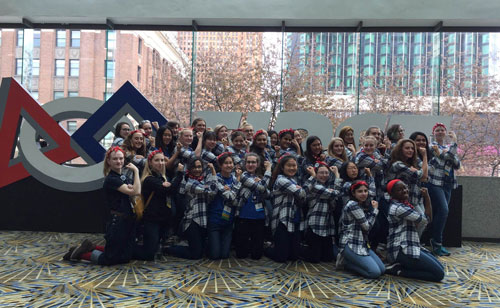
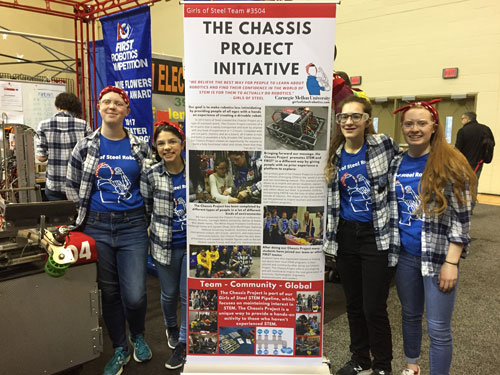

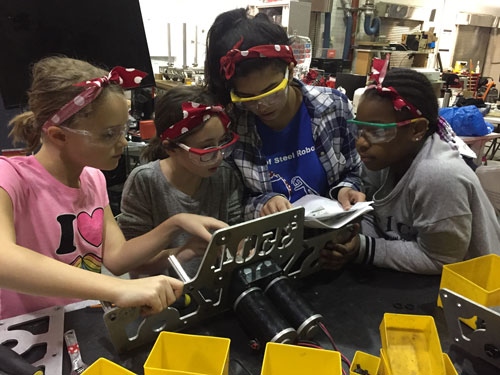
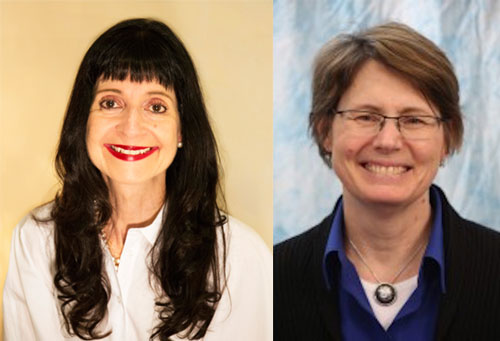



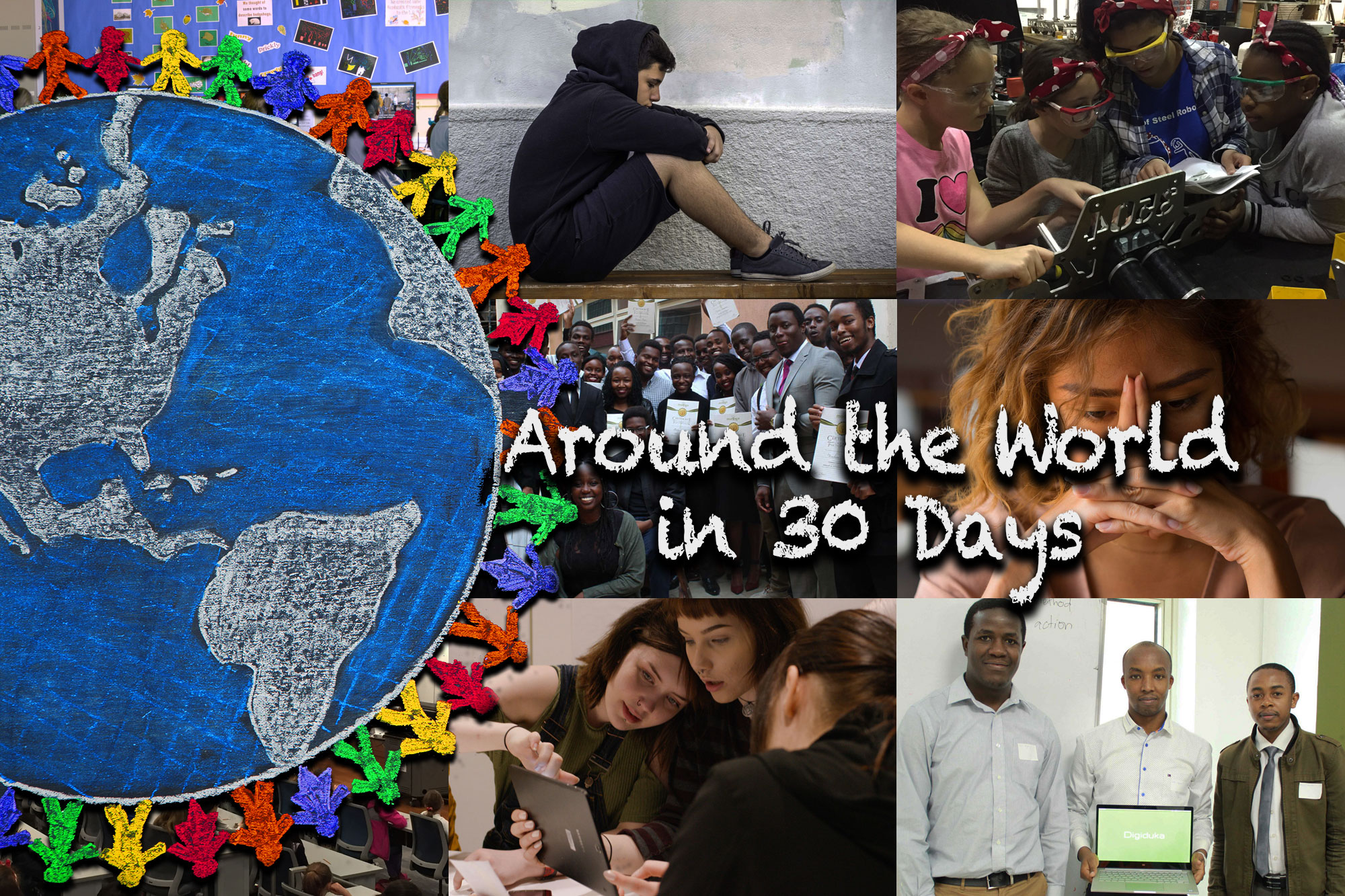
Commentaires récents